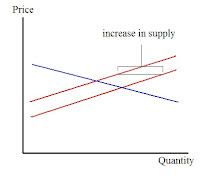In order from extremely amazing to moderately amazing:
 The Blank Slate -- Steven Pinker
The Blank Slate -- Steven Pinker
Discusses the implications of modern psychology for the social sciences, with an illuminating focus on political issues.
 Bowling Alone -- Robert Putnam
Bowling Alone -- Robert Putnam
A look at the decline in community involvement over the past 50 years, drawing on many aspects of modern sociology.
 Guns, Germs, and Steel -- Jared Diamond
Guns, Germs, and Steel -- Jared Diamond
A wide-ranging look at how environmental and demographic factors influenced human civilization.

Paul Krugman delivers the smackdown to dumb non-economists, and in the process provides the most entertaining presentation of economics since Frederic Bastiat's hilarious Economic Sophisms.
 The Death and Life of Great American Cities -- Jane Jacobs
The Death and Life of Great American Cities -- Jane Jacobs
 The Skeptical Environmentalist -- Bjørn Lomborg
The Skeptical Environmentalist -- Bjørn Lomborg
The optimistic truth about the environment, resource scarcity, overpopulation, and world poverty.
 How We Know What Isn't So -- Thomas Gilovich
How We Know What Isn't So -- Thomas Gilovich
The title says it all.
 Why Societies Need Dissent -- Cass Sunstein
Why Societies Need Dissent -- Cass Sunstein
An entire book about how groups screw things up.
 Hard Heads, Soft Hearts -- Alan Blinder
Hard Heads, Soft Hearts -- Alan Blinder
One of the very few popular macroeconomics books ever written. It can be hard to find macroeconomics interesting, so I recommend reading some other econ book (or two or three) before this one.

In my opinion the best of the books on global poverty. He finds the common sense middle ground between leftist Jeffrey Sachs and libertarian William Easterly, and then he adds more common sense and a lot of practical political science.
Criterion used:
1) Must broadly agree with the academic literature. This rules out most everything written by John Kenneth Galbraith (if only he wasn't a crazy eccentric!) as well as Frederic Bastiat's Economic Sophisms (if only he had started writing after the labor theory of value was abandoned!).
2) Must cover a wide subject area. This rules out excellent books like Robert Axelrod's The Evolution of Cooperation and Andrew Gelman's Rich State, Poor State, Red State, Blue State.
3) Must be easily decipherable by an intelligent layman. This rules out John Zaller's The Nature and Origins of Mass Opinion and Tullock and Buchanan's The Calculus of Consent.
4) Must be well written. Nothing bothers me more than a sentence that should be simple but instead reads like a math equation. (Yes, I'm looking at you, Friedrich Hayek.) Nothing, that is, except writers who get sidetracked by dumb irrelevant ideological issues. (Strange example: Nicholas Christakis and James Fowler talking complete nonsense about superorganisms in Connected.)

No comments:
Post a Comment